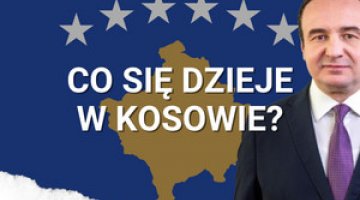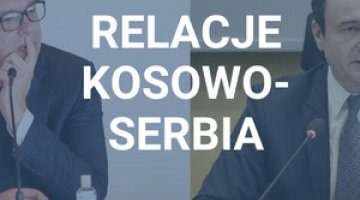Tension between Kosovo and the USA
Most deputies in the ruling coalition, with the support of the President of Kosovo, Hashim Thaçi, made an attempt on 22 December to repeal the law creating the Specialist Chambers and Specialist Prosecutor’s Office, based in the Hague, which would sit in judgement on the crimes of the Kosovo Liberation Army (KLA). The vote on the draft law failed because of the lack of a quorum, but the deputies plan to vote on it again. The initiative to remove the Specialist Chambers met with harsh criticism from the Quint countries because they recognise that it calls into question Kosovo’s commitment to the rule of law. Washington has threatened that if the court in the Hague is liquidated, it will unblock the Russian initiative at the UN to create a Special Court for Kosovo. The Kosovar Prime Minister also had to cancel a visit to the US as he did not obtain an American visa.
The Specialist Chambers and Specialist Prosecutor’s Office were created on the basis of a law adopted by the parliament of Kosovo in 2015 under strong pressure from the West. These offices operate according to Kosovo law, but have been staffed with international judges and prosecutors in order to ensure their impartiality. These institutions have been dealing with crimes committed against the Serbs during the struggle for independence in the years 1998-2000. In February, prosecutors at the Hague are supposed to submit indictments against more than 60 people, mostly members of the KLA, many of whom are prominent politicians today. Proceedings are also being carried out against the President of Kosovo and the speaker of parliament.
Commentary
- The establishment of the Specialist Chambers and Specialist Prosecutor’s Office was intended to demonstrate that the West is able to demand compliance with the principles of the rule of law in Kosovo, and the elite of this state is ready to resolve the question of war crimes. The charges against the elite of Kosovo presented in this document, including war crimes and organ trafficking, were too serious to be ignored and have affected the image of the state very negatively. However the Kosovar justice system, which was constructed with the support of the USA and the EU’s EULEX mission, would be unable to try the suspects. It is too closely linked to the local elite and is vulnerable to pressure from the West, which while officially referring to the rule of law has in practice protected the political elites in order to ensure the stability of the state.
- The deputies’ initiative is another in a series of actions displaying the Kosovo elite’s sense of its own impunity. In December President Thaçi acquitted three KLA fighters who had been convicted of the murder in 2001 of the family of an Albanian who had worked for the Serbian police. The action of the elites, who fear being forced to face criminal liability, has further weakened the position of Kosovo among the international community, which is less and less sympathetic to the young state. This has resulted in difficulties in deepening cooperation with the EU, arranging visa-free travel with Schengen, and gaining membership of UNESCO. In this context, the conflict with Kosovo’s main protector, the US, will make Prishtina’s international activities significantly more difficult.
- The dispute around the Court in the Hague has confirmed the increasing ineffectiveness of the policy conducted by the US and EU in Kosovo, which is based on unconditional support for the disgraced KLA elites. Washington must exert stronger pressure in order to persuade Kosovo’s elite to continue any reforms. This policy is also leading to an increase in support for nationalist protest movements opposed to the continued presence of international forces in Kosovo, which makes the state less and less stable.




